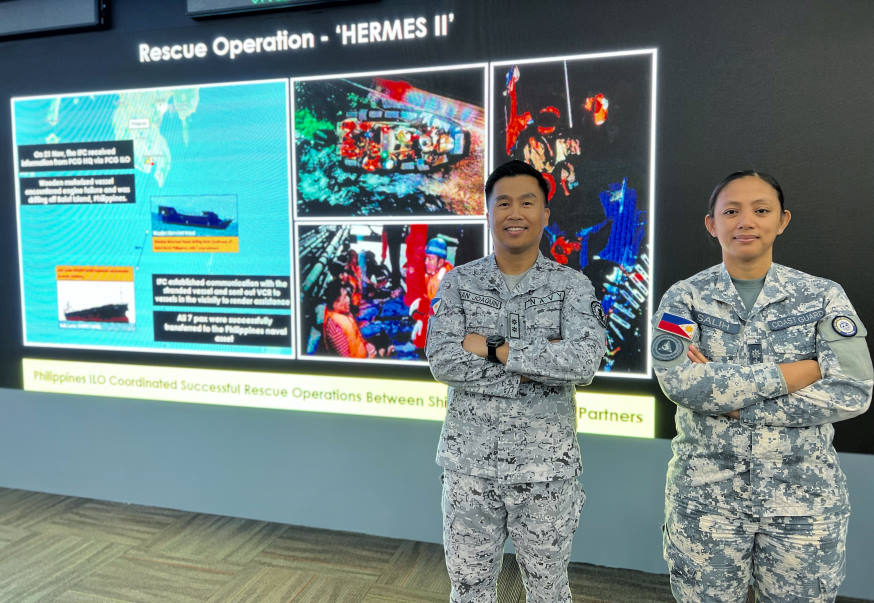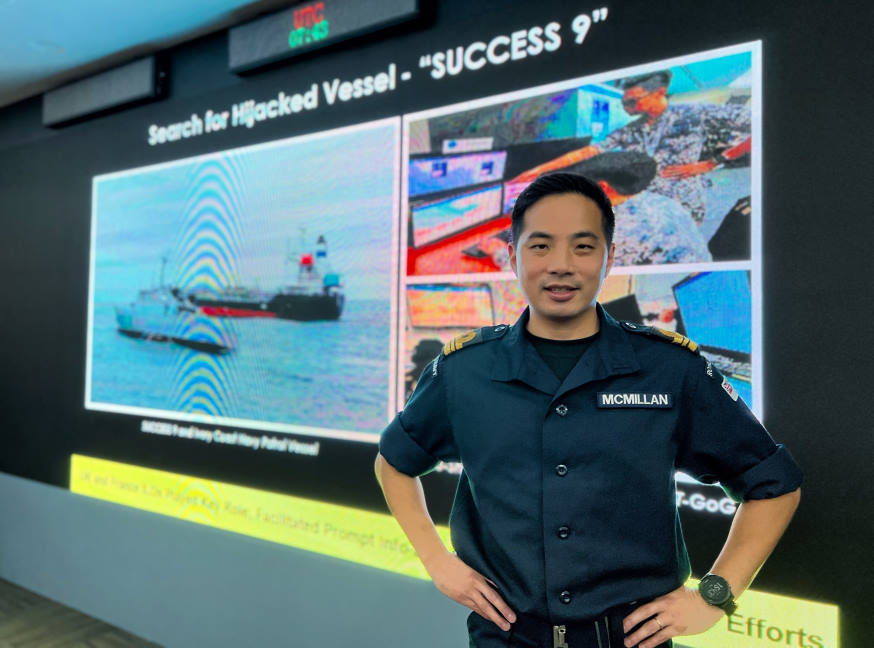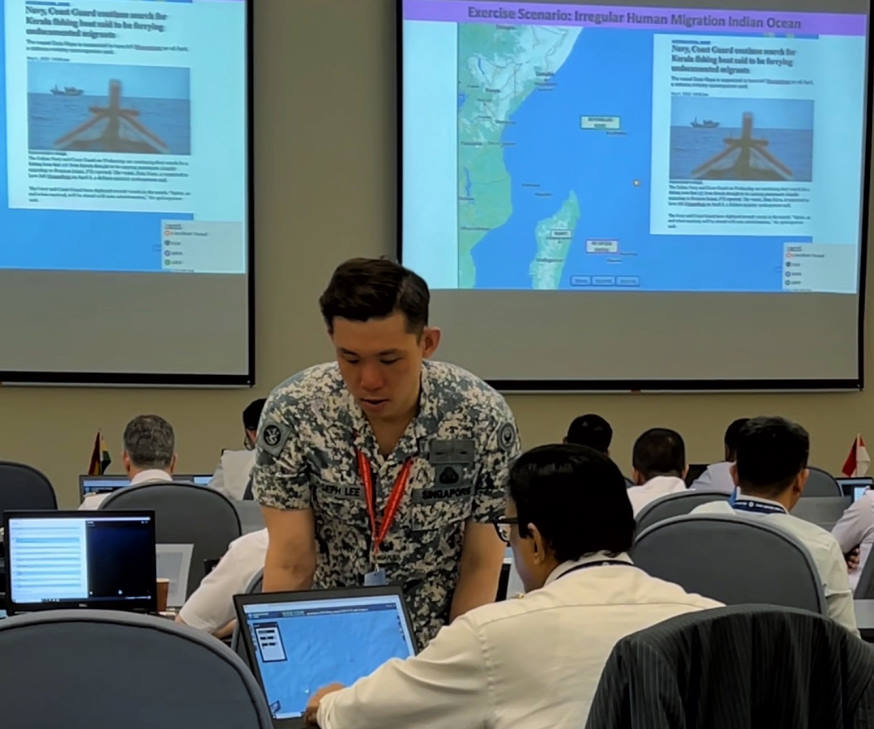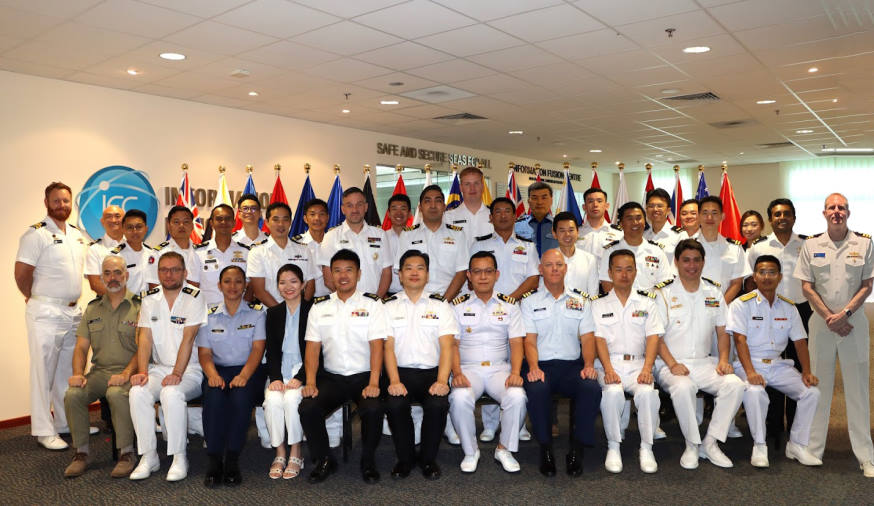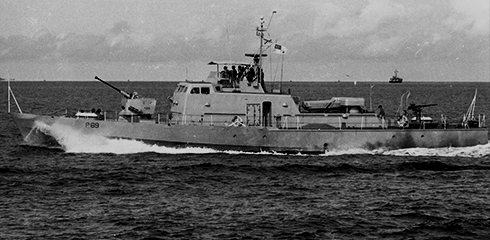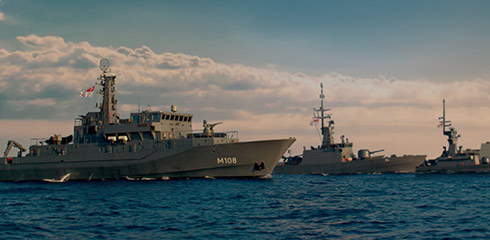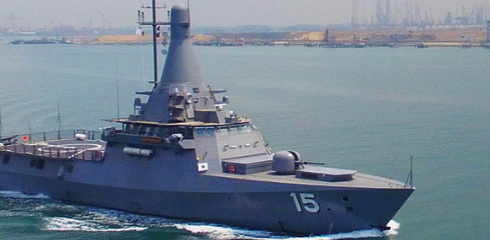Since its establishment in 2009, the Information Fusion Centre has served as a regional Maritime Security (MARSEC) centre. Located at the Republic of Singapore Navy's (RSN) Changi Command & Control Centre (CC2C), the IFC is home to not only a team of RSN personnel but also International Liaison Officers (ILOs) from various countries around the world.
Serving as a Vital Link
Every ILO at IFC is an essential cog in ensuring maritime security. Besides their domain expertise and knowledge of the waters surrounding their home countries, they also provide a direct link between IFC and their respective operational centres (OPCENs) to facilitate actionable information-sharing. Given that MARSEC incidents can occur in any part of the world and involve vessels of different flags, strong linkages between OPCENs mean that information can be shared to cue prompt operational responses by navies, coast guards, maritime enforcement agencies, and shipping companies.
Sharing information may sound intuitive, but it can be challenging to establish working processes across international parties. Very often, it takes time to build rapport and to understand one another's cultural and language differences. When ILOs are present, they act as a 'bridge' and ensure that the information reaches the right parties in a timely manner.
For example, in late November 2022, the IFC received information from the Philippine Coast Guard through the Philippine Coast Guard ILO about a vessel 'HERMES II', which was in distress. Its engine had failed and the crew had no means of returning back ashore. The IFC alerted other vessels in the vicinity to render immediate assistance through its information-sharing channels. The crew on board 'HERMES II' was rescued by a nearby Japanese vessel MV Shinryo Maru before being transferred to the Philippine Navy Jacinto-class Patrol Ship BRP Artemio Ricarte.
Philippine Coast Guard ILO Commander (CDR) Angela Naval Salih sums up the work that she and her fellow ILOs do:
Philippine Coast Guard ILO CDR Salih (right) and her counterpart ILO from the Philippine Navy CDR Arnold San Joaquin (left).
Another example illustrating the transboundary nature of MARSEC incidents was that of a Singapore-flagged oil tanker 'Success 9' which had been boarded by unidentified personnel off the coast of Côte d'Ivoire in April 2023. Working with the IFC and the Monrovia Regional Maritime Rescue Coordination Centre, the Maritime and Port Authority of Singapore was able to reach the ship owner and multinational agencies in the region. The ILOs based in IFC were instrumental in leveraging their respective networks to facilitate timely information-sharing, which eventually contributed to the successful location of the tanker and the recovery of its crew.
Having been personally involved in the 'Success 9' incident, the United Kingdom ILO Lieutenant-Commander (LCDR) Nelson McMillan reflects:
LCDR McMillan and the French Navy ILO CDR Stéphan Litzler (not pictured) contributed to the search and locate efforts for 'Success 9' by leveraging their linkages with respective OPCENs.
Iron Sharpening Iron
To keep up in an ever-changing world, the IFC works hard to stay relevant and streamline their processes and linkages. They also organise meetings and exercises that bring different agencies together for fruitful and honest conversations.
One such exercise that they organised recently was the 8th Maritime Information-Sharing Exercise, or MARISX for short. Over three days, the ILOs provided MARSEC updates, conducted tabletop exercises (TTX) as well as subject matter case studies presentations.
Philippine Navy ILO CDR Arnold San Joaquin shared that preparations for MARISX commenced more than a month prior, and IFC actively involved the ILOs in developing the scenarios for the TTXes.
“ We shared about our experiences in the region and made recommendations on how the scenarios could be more realistic. I think that helped IFC refine the TTX so that the MARISX participants could have a better understanding of our processes and linkages with our respective OPCENs. ”
- CDR San Joaquin
MARISX participants in discussion during one of the TTXes.
A Home Away from Home
Taking on the role and responsibilities as an ILO usually means serving a tenure that can last from between a few months to years. While it can be challenging to be away from one's home country during this period, the tight-knit community at IFC truly makes a difference, as CDR Salih shares:
Over the past 14 years, the IFC has welcomed over 200 ILOs from 26 countries. Although they are a diverse team, they are unified in their mission: to collect, sense-make, and ultimately produce actionable MARSEC information for partner OPCENs and the shipping community in order to achieve sea and secure seas for all.
Find out more about IFC here: http://www.ifc.org.sg/


